| who acknowledges and thanks the Lkwungen People for allowing me to live, pray, work, and play on their lands. I am deeply sorry for the injustices inflicted upon the First Nations, Inuit and Métis peoples in Turtle Island by the complicity of settlers in the colonialism inherent in the Indian Act and Residential Schools including racism and cultural genocide. I commit to work for truth, healing and reconciliation. |
Hope you voted and kept a sense of humour!
Plus ça change, plus c'est la même chose!
Hope you had a spirit filled celebration of the Feast of St Francis of Assisi and had opportunity give thanks for Creation. I thank Fr. Manoj Xalxo, OFM for his reflection. So inspiring!
Video: A World of Gratitude | Season of Creation 2021 (6:29)
Launch pushed back to mid-November
Vatican plans 40 days of prayer (share with your parish and community), promotion ahead of sustainability initiative rollout. Originally set for Oct. 4, the feast day of St. Francis of Assisi, the Laudato Si' Action Platform is now scheduled to begin its enrollment period on Nov. 14. By that time, planning guides and related materials for the program — a type of sustainability road map guided by church teaching — are expected to all be completed and made available on the initiative's website.
Meanwhile, the Vatican Dicastery [Department] for Promoting Integral Human Development, which is leading the project, has planned a 40-day prayer and promotion campaign to increase awareness and build greater momentum around the action platform. It also plans to release some initial resources on the website Oct. 4, along with a list of events to take place before the new launch date.
In a letter announcing the new campaign, Cardinal Peter Turkson, prefect of the dicastery, formally invited Catholic organizations to join the Laudato Si' initiative during what he called "this crucial decade" for "radical societal transformation" as increasing climate change and environmental degradation threaten both the planet's ecosystems and people.
The new target date, Nov. 14, is the World Day of the Poor, which Francis established in November 2016. The launch will also follow a major U.N. climate conference, COP26, to be held in Glasgow, Scotland, Nov. 1-12. That could be symbolic, Kureethadam told working group members, because once the conference is over, "we get to do action."
In anticipation of COP26, Francis hosted a gathering of faith leaders and scientists at the Vatican Oct. 4, which also concluded the ecumenical Season of Creation. They produced a statement to world leaders stressing the moral urgency of substantial action at the Glasgow summit. Along with the Pope, were Archbishop of Canterbury, Justin Welby, Orthodox Ecumenical Patriarch Bartholomew, Grand Imam of al-Azhar, Ahmed el-Tayeb and representatives of Judaism, Hinduism, Sikhism, Buddhism, Confucianism, Taoism, Zoroastrianism and Jainism. They were also joined by scientists who had helped draft the declaration. “We have inherited a garden; we must not leave a desert to our children” said an appeal signed by those who gathered. Christine Allen, director of CAFOD, the Catholic development agency for England and Wales, told Vatican News on Monday that "it's really quite unprecedented, isn't it, for so many faith leaders to come together in this way.”
Paz Artaza-Regan, told EarthBeat in an email that the delay is to ensure that a large and complicated project is fully vetted before its release. "In the spirit of synodality, the Vatican wishes to ensure that the Platform fully reflects the needs and concerns of every region of the world, that it provides all the regionally relevant resources, and that it works well before launching," she said.
As identified in Laudato Si and Fratelli Tutti, it is clear that some of the most immediate political challenges of the early 21st century require co-ordination and international agreement, including climate change, supporting biodiversity and environmental sustainability, reigning in destructive economic libertarianism and corporate greed, and recognising the rights of refugees and migrants and the dignity of the poorest people on our planet. Fratelli Tutti elevates politics to a “lofty vocation and one of the highest forms of charity, inasmuch as it seeks the common good” (FT. 180).
One way Pope Francis hopes to achieve this is synodality.
| Did you hear about this? The Diocesan Phase of the Synodal Process 2021-2023 is an opportunity to listen more deeply to the voice of the Spirit, enhance participation and outreach, improve the quality of dialogue, discern about further issues, strengthen conversion in attitudes and skills, and animate people's sense of connection between the local, regional, and global church. |
Pope Francis invites the whole Church to question itself on synodality: a decisive theme for the life and mission of the Church. This site will accompany the two-year journey (2021-2023) of reflection and sharing of the whole Church. [That includes you and me!]
As stated in the Preparatory Document, the Synod considers a main question: How is our “walking together” in synodality realized today in the Church? What steps does the Spirit invite us to take in order to grow in our “walking together”? The sensus fidei of the whole People of God is sought on this question. Since each diocese has a unique context, its path for seeking, promoting, and reaping the fruits of this sensus fidei will be unique.
Overall, the Synod guidelines remind us that:
- The goal is to ensure the participation of the greatest number possible, in order to listen to the living voice of the entire People of God.
- This is not possible unless we make special efforts to actively reach out to people where they’re at, especially those who are often excluded or who are not involved in the life of the Church.
- There must be a clear focus on the participation of the poor, marginalized, vulnerable, and excluded, in order to listen to their voices and experiences.
- The Synodal Process must be simple, accessible, and welcoming for all.
Planning for such a process is already the beginning of synodal conversion! The Diocesan Contact Person(s) and Synodal Team together with the Bishop could discuss them together. We are encouraged to take a look at the Preparatory Document and Vademecum in a prayerful and reflective way.
From Hamilton (Ontario) Diocese: POPE FRANCIS HAS ANNOUNCED that the next Synod of Bishops will take place in October 2023. The theme for the Synod is: For a Synodal Church: Communion, Participation, and Mission. It will be the culmination of a “three-year path” involving the People of God at every level of the Church. Pope Francis will officially inaugurate the event on the weekend of October 9-10. The first phase of the synodal path will take place in each Diocese beginning on the weekend of October 17th, under the leadership of the Bishop. This will be marked in the Sunday liturgies in all our parishes, and most particularly at the 4 p.m. Mass at the Cathedral Basilica of Christ the King. A Synod Committee has been established … They will facilitate the synodal process so that as many parishioners as are interested in participating can be engaged. More information will be provided as the process gets underway.
[Question: Have you heard about this Diocesan Phase or a Synodal Team in your Diocese (or parish)? My pastor had heard just a couple of days ago and will take action. If yours has not, ask your Bishop and pastor about it!]
$30M NATIONAL PLEDGE TO SUPPORT HEALING & RECONCILIATION
Monday, 27 September 2021
The Bishops of Canada, as a tangible expression of their commitment to walk with the Indigenous Peoples of this land along the pathway of hope, are making a nation-wide collective financial commitment to support healing and reconciliation initiatives for residential school survivors, their families, and their communities.
With a target of $30 million over up to five years, this will include initiatives in every region of the country. The commitment will be achieved at the local level, with parishes across Canada being encouraged to participate and amplify the effort.
Bishop Raymond Poisson, President of the Canadian Conference of Catholic Bishops (CCCB), expressed hope that these efforts will support meaningful projects across Canada and make a significant difference in addressing the historical and ongoing trauma caused by the residential school system.
Funding for projects will be determined locally, in consultation with First Nations, Métis and Inuit Peoples in each region. The Bishops of Canada have committed and tasked themselves to develop national principles and strategy, timelines, and the public communication of these collective initiatives this November.
Colonialism, Catholicism and role of a Bishop of St Albert, Alberta (from various sources)
Bishop Vital-Justin Grandin (1829-1902) was a key architect of the Canadian Indian residential school system, which has been labeled an instrument of cultural genocide. In June 2021, this led to governments and private businesses to begin removing his name from institutions and infrastructure previously named for him.
It was his belief that maintaining Indigenous cultural practices would lead to the self-extinction of Indigenous people. Modeled in part on reformatory prisons in France, the residential schools intended to alienate Indigenous children from their language, traditions and families, and ultimately to make them ashamed of their heritage. The schools’ aim was to replace Indigenous cultures and languages with Canada’s English and French cultures, supplemented with industrial and agricultural training. “[Bishop Grandin] boasted that the orphans educated at mission schools hated to be reminded of their Aboriginal ancestry,” according to the T.R.C. report.
Bishop Grandin’s views deeply influenced the Missionary Oblates of Mary Immaculate, who operated the majority of the Catholic residential schools in Canada. Ken Thorson, O.M.I., the provincial superior of O.M.I. Lacombe Canada, said in an email to America that while the Oblates were not founded to be educators, “our charism called us to respond to the needs of the day, and so education was a hallmark of Oblate ministry in Canada, with schools, colleges and universities being established.”
“When the Canadian government began to establish Indian Residential Schools, they enlisted the assistance of the various churches primarily because they were already involved in education,” said Father Thorson. “The Oblates of the time responded, seeing the opportunity for evangelization and education.”
The Oblates of today now understand this part of their history as complicity in Canadian colonialism. “We experience deep regret about Oblate involvement in residential schools, about implementing government policy to restrict or forbid Indigenous languages and culture,” said Father Thorson.
Catholics in Canada have struggled to come to terms with such a violent history, and many are publicly leaving the church because of its participation in the residential schools and an unwillingness on the part of the hierarchy to apologize as a body. In a statement on its website, the Canadian Conference of Catholic Bishops said that “each diocese and religious community is corporately and legally responsible for its own actions. The Catholic Church as a whole in Canada was not associated with the Residential Schools, nor was the Canadian Conference of Catholic Bishops.” [True but irrelevant because they finally did respond as an entity called -not surprisingly- the CCCB.]
Claims of $28M of 'in-kind' help for residential school survivors includes bible study, parish staffing as part of compensation. Questionable?
Read more "It's distressing to see this. This is ordinary church religious work repackaged as in-kind services and reconciliation. This is not legitimate," said Mary Ellen Turpel-Lafond, a former judge and director of the University of British Columbia's Indian Residential School History and Dialogue Centre.
The Church has repeatedly declined to provide details of the $25-million promise of in-kind services, other than to state publicly that the amount was exceeded.
The corporation formed by the churches to oversee the 2005 deal has since been dissolved. … the Catholic Church's claims were evaluated by a committee that included members from Catholic entities, the federal government and the Assembly of First Nations. It's unclear whether that committee approved the items in the document obtained by CBC News.
[LET’S HOPE THEY DID. IF LOCAL INDIGENOUS CATHOLICS ASKED FOR IT, THAT MAKES IT RIGHT AND NOT A REASON FOR CRITICISM.]
Photo by Julie Johnston, GreenHeartEducation
B.C. Supreme Court ends Fairy Creek injunction
B.C. Supreme Court Justice Douglas Thompson, in a judgment on Tuesday [28 Sept], ruled that the court injunction granted to Teal Cedar will not be extended, saying that the RCMP’s enforcement tactics “have led to serious and substantial infringement of civil liberties.”
The RCMP has arrested more than 1,100 protesters since the injunction took effect.
The case for saving some of the most precious ecosystems on Earth. The direct link between logging old-growth forests and climate change has been well established.
In British Columbia, CO2 emissions from clear cutting, including the loss of standing carbon stocks as well as foregone photosynthetic uptake, exceeds the amount emitted from fossil fuels like oil and natural gas.
| CARITAS CANADA D&P Fall Action Campaign TAKE ACTION: See the Video (1 min 34 secs) and sign the petition to the House of Commons |
We know the choices we are making today will shape our communities, our economy, our health and the health of our planet for years to come, so let’s make sure our transition is towards a just economy that addresses integral human development. How can we make sure human rights are respected and environmental harm avoided as we improve our global and national climate policies? We must make sure that people and the planet are at the centre of our just recovery.
Voluntary measures are not enough
It is time to catch up! Are we ready for Canada to be a real leader in international human rights and responsible business conduct? For over a decade, Canadian companies have been expected to care for the environment and respect human rights. And yet, the lived experiences of Development and Peace partner organizations demonstrates that existing measures are not effective in preventing human and environmental abuses around the world.
We want the obligation to prevent human rights violations to be legally binding. Canadian companies will have to develop and implement human rights and environmental due diligence procedures for their entire supply and value chains, and report on it. With due diligence legislation, if a company fails to undertake reasonable steps, the victims of any harm will have access to remedy and meaningful consequences through the Canadian courts.
As Pope Francis wrote in his letter on a conference held in Assisi in 2020 entitled “Economy of Francis”:
PEOPLE AND PLANET FIRST MEANS “a different kind of economy: one that brings life not death, one that is inclusive and not exclusive, humane and not dehumanising, one that cares for the environment and does not despoil it.”
SOUNDS A BIT LIKE:
More than 10 million people die every year from air pollution, a problem that doesn’t receive enough attention. Bloomberg article But the WHO has a plan
Nobel Peace Prize winners 2021:
Maria Ressa (Philippines) & Dimitri Muratov (Russia)
Pray for fearless journalists! We need them!
HAPPY THANKSGIVING! PEACE & JOY, ANDREW, OFS

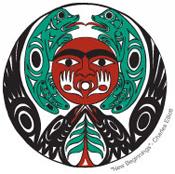
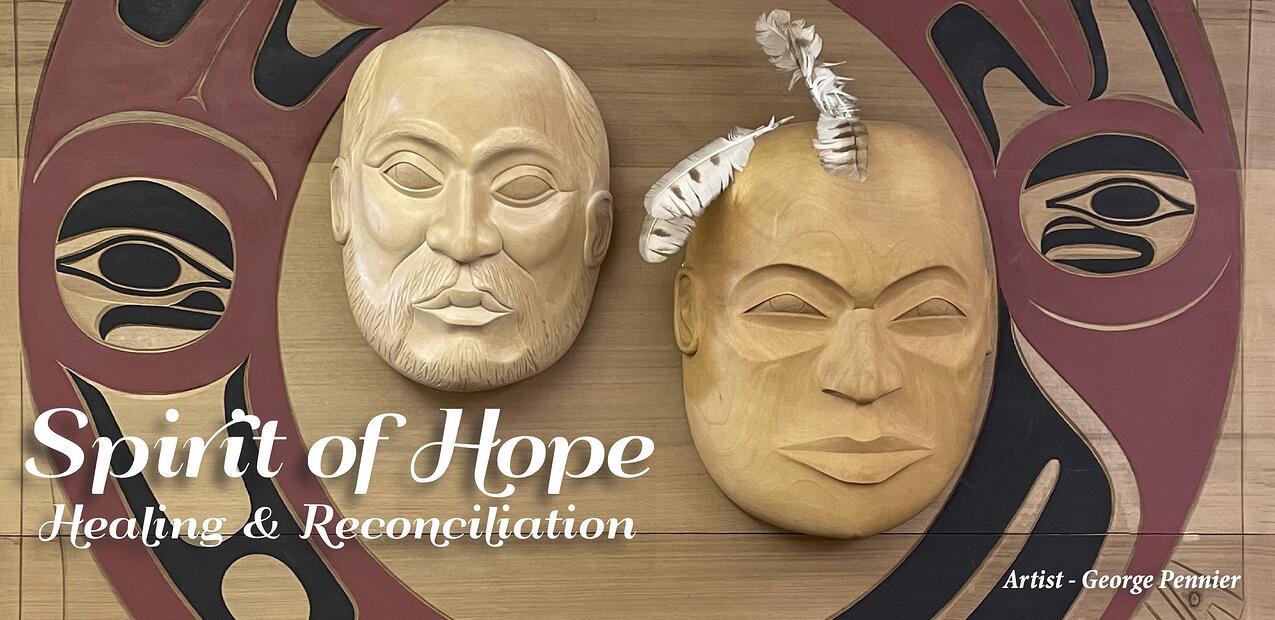
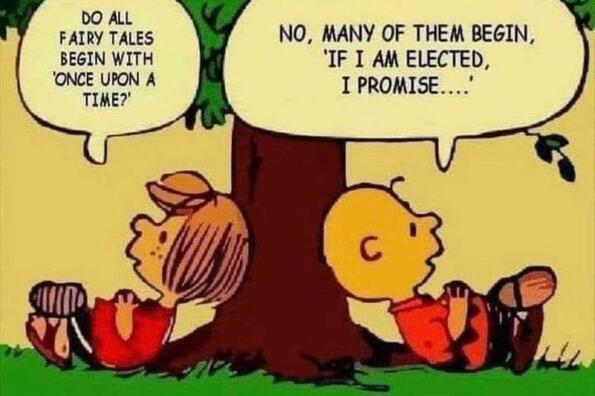
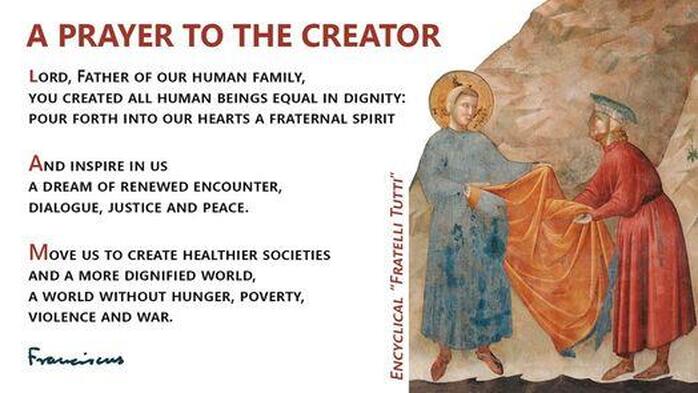
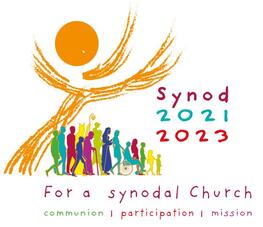
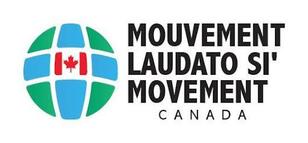
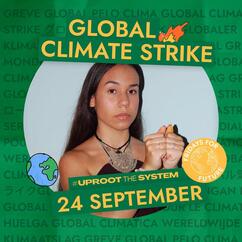
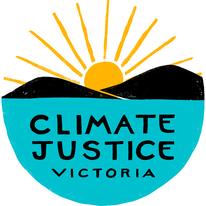
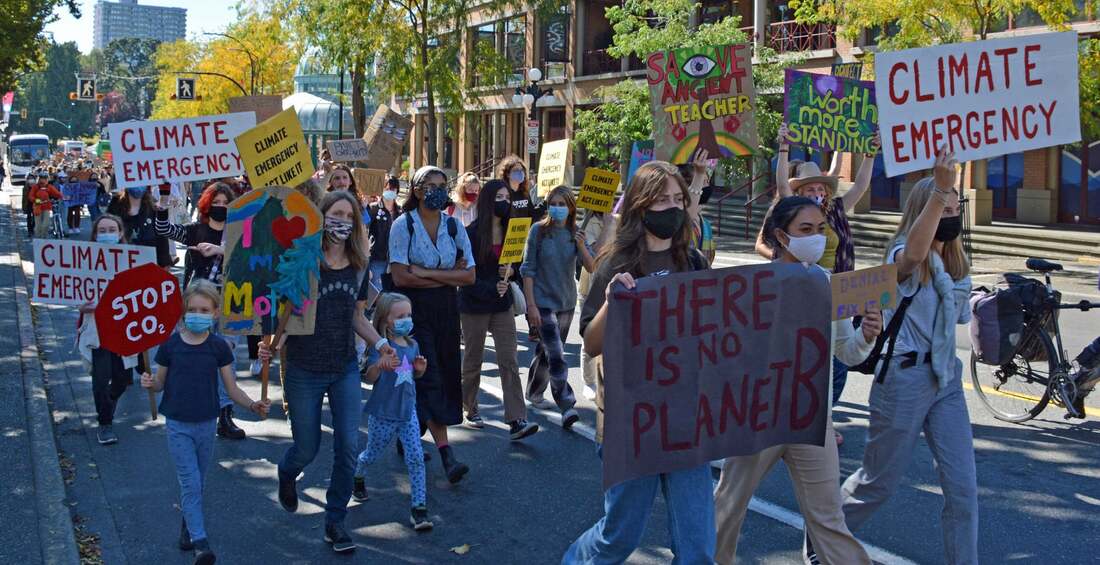
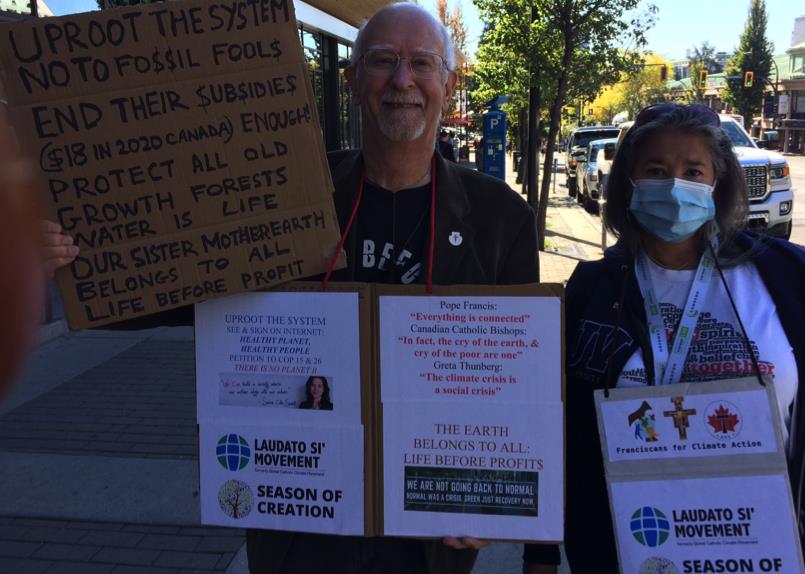
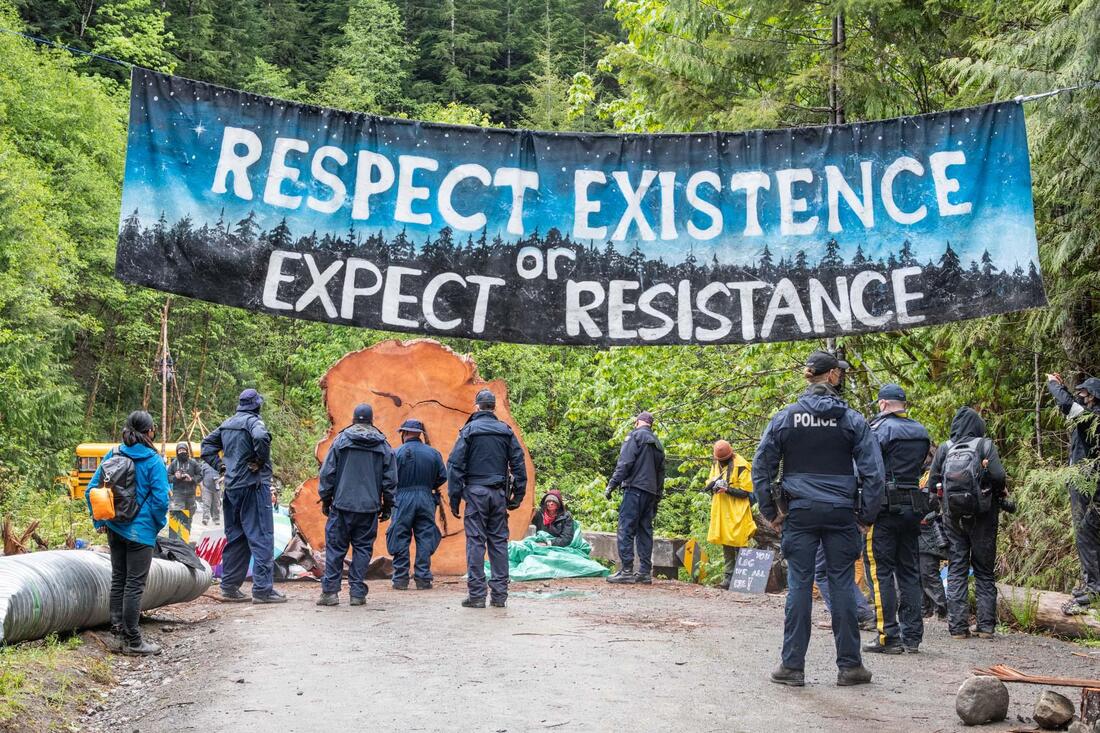
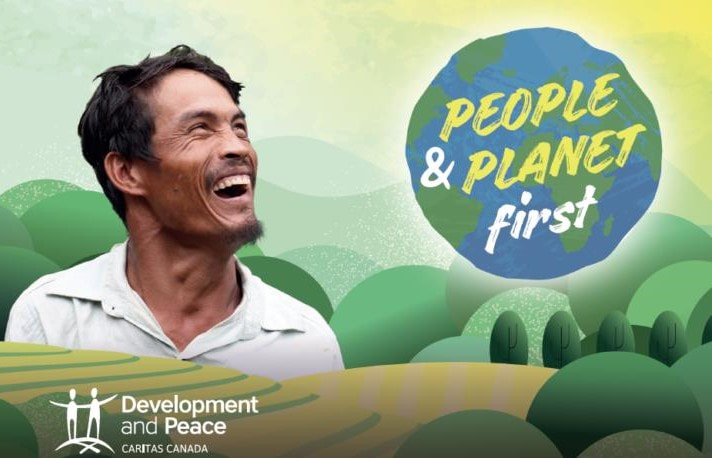
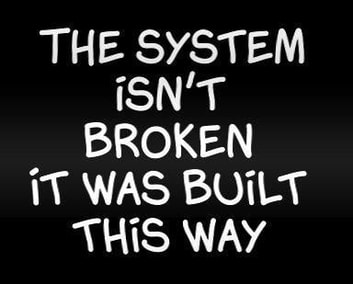
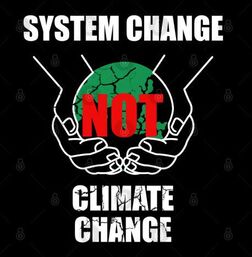
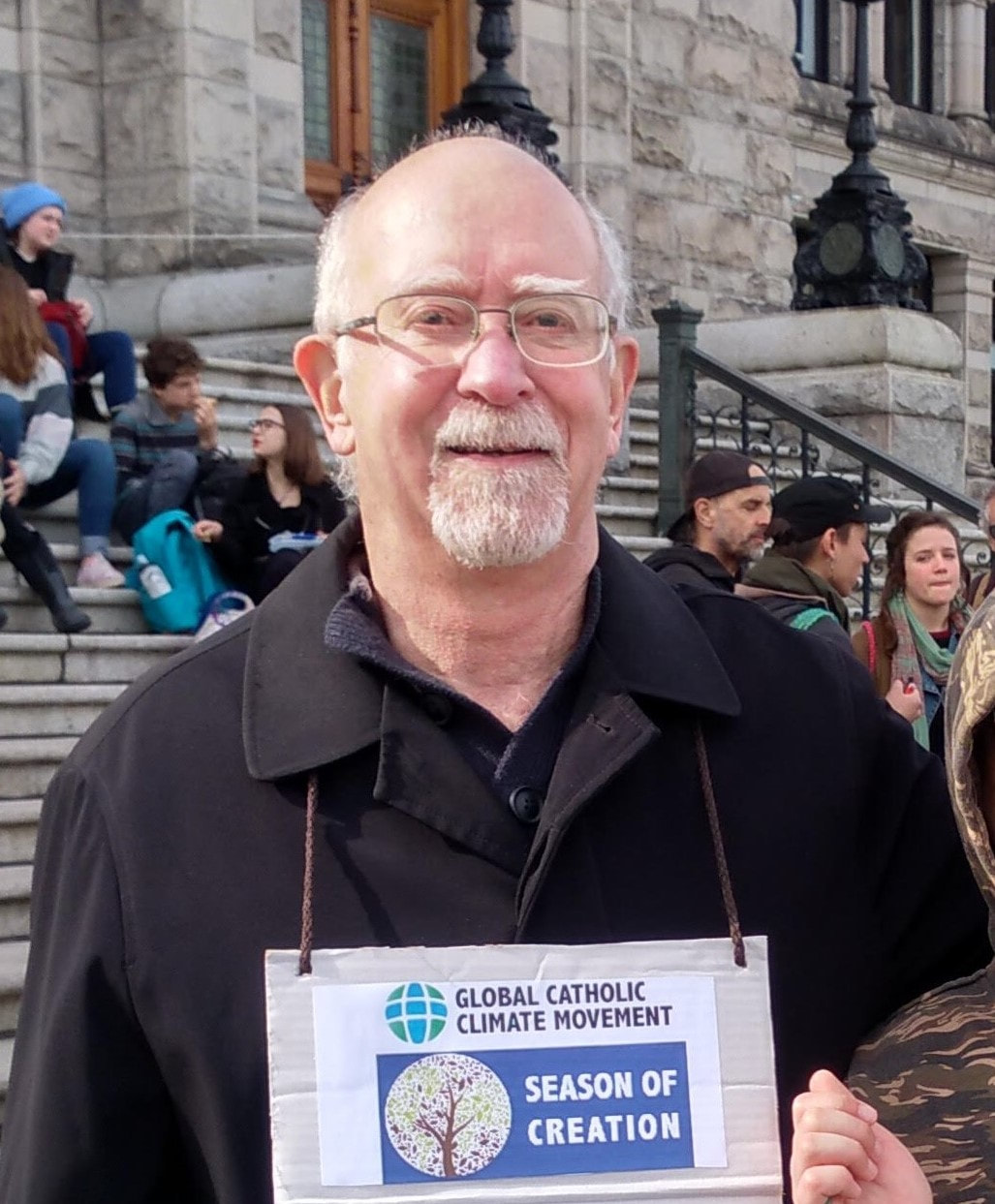

 RSS Feed
RSS Feed